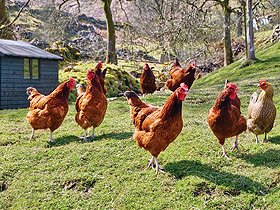One of the views held by the proponents of punctuated evolution is the concept of narrow populations. This postulates that new species form in communities consisting of very small numbers of animals or plants. According to this claim, populations containing large numbers of animals exhibit no evolutionary development, but remain in a state of stasis. However, small groups that separate from this population and become isolated (generally because of geographical conditions), will reproduce solely among themselves. Macro-mutations then occur in these groups and rapid speciation takes place.
Proponents of punctuated equilibrium insist on the concept of narrow populations simply because they cannot account for the lack of any evidence in the fossil records. That is why they imagine that evolutionary changes took place very rapidly and in narrow populations, for which reason no fossil traces have been left behind.
In recent years, however, scientific experiments and observations have revealed that narrow populations are a disadvantage rather than an advantage. Rather than developing and giving rise to new species, narrow populations actually cause severe genetic impairments, since individuals must constantly reproduce within a restricted gene pool. As result, normally heterozygotic individuals become increasingly homozygotic. Impaired or defective genes, normally recessive become dominant, and the population suffers increasing genetic diseases.67
In order to investigate this, one study on chickens was conducted over 35 years. Chickens kept in a narrow population were seen to become genetically weakened. Egg production fell from 100% to 80%, and reproduction levels from 93% to 74%.
However, this genetic regression was halted through conscious human intervention. When chickens were brought in from other regions and the augmented chicken population reassumed normal trends.68
This and similar findings show that the claim of punctuated evolution-that narrow populations are the source of evolutionary development-has no scientific validity. (See The Punctuated Evolution Model.)
67.Michael E. Soulé, L. Scott Mills , "No need to isolate genetics," Science 282: 1998, p. 1658.
68.Richard Leakey, The Making of Mankind, Sphere Books, London, 1981, s. 62.


